The Philosophy of Monarchy and Its Place in Today's Politics
Monarchy, a term that often evokes images of grand castles, royal ceremonies, and a lineage that dates back centuries, holds a unique place in the tapestry of political history. But what does monarchy really mean in today's fast-paced and ever-changing political landscape? This article dives deep into the historical and contemporary significance of monarchy, examining its philosophical underpinnings and relevance in modern governance and political discourse. As we explore the layers of monarchy, from its ancient roots to its current adaptations, we will uncover the intricate dance between tradition and modernity, authority and consent.
To truly grasp the philosophy of monarchy, we must first understand its historical context. Monarchies have existed in various forms across the globe, from the absolute monarchies of Europe to the constitutional monarchies of Japan and the United Kingdom. Each of these systems has shaped political thought and societal structures in profound ways. Historically, monarchies were often seen as the embodiment of divine will, where kings and queens ruled not just by right of birth but by divine sanction. This belief created a framework where the monarch was viewed as a pivotal figure in the governance of the realm, often wielding immense power over their subjects. The evolution of monarchy is not merely a tale of power; it's a narrative that intertwines with the rise of nation-states, revolutions, and the gradual shift towards democratic ideals.
At the heart of monarchy lies a rich tapestry of philosophical ideas that have evolved over centuries. These ideas include the concepts of divine right, legitimacy, and social contract theory. Each of these elements plays a critical role in understanding how monarchies justify their existence and authority. For instance, the divine right of kings was a prevalent notion that posited that monarchs were appointed by God, thus granting them unquestionable authority. This philosophical justification not only solidified the monarch's power but also shaped the societal structures around them. However, as society progressed, critiques of this idea began to surface, leading to the emergence of alternative governance theories that challenged the traditional notions of authority.
The divine right of kings is a fascinating concept that has shaped many monarchies throughout history. This doctrine suggested that monarchs derived their authority directly from God, making them answerable only to divine judgment rather than to their subjects. This created a powerful narrative that justified the monarch's rule, allowing them to maintain control over their kingdoms. Historical examples abound, such as the reign of Louis XIV of France, who famously declared, "L'état, c'est moi" (I am the state), embodying the essence of absolute monarchy. However, this notion was not without its critics. Enlightenment thinkers like John Locke and Jean-Jacques Rousseau challenged the divine right, advocating for the idea that authority should stem from the consent of the governed.
Throughout history, various monarchies have embraced the concept of divine right, each leaving a distinct mark on their societies. For instance:
- Louis XIV of France: His reign epitomized the absolute monarch, where he centralized power and built the lavish Palace of Versailles.
- James I of England: He asserted the divine right, leading to tensions with Parliament and eventually contributing to the English Civil War.
- The Tsars of Russia: They ruled with an iron fist, believing their authority was sanctioned by God, which led to significant social upheaval.
As societies evolved, critiques of the divine right of kings became more pronounced. Enlightenment philosophers argued that the idea was fundamentally flawed, as it disregarded the rights and voices of the people. The rise of democracy and republicanism challenged the very fabric of monarchical authority, leading to revolutions and the establishment of governments based on popular consent. This shift marked a significant turning point in political philosophy, where the legitimacy of power began to be viewed through the lens of the social contract.
Social contract theory offers a compelling perspective on the relationship between monarchs and their subjects. It posits that the authority of the ruler is derived from an implicit agreement between the governed and the governing. This means that a monarch's legitimacy hinges on the consent of the people, highlighting the mutual obligations that exist within this relationship. In essence, if a monarch fails to uphold their end of the contract—protecting the rights and welfare of their subjects—they risk losing their authority. This philosophical framework not only redefined the role of monarchy but also laid the groundwork for modern democratic principles.
In today's political climate, monarchies face a myriad of challenges and adaptations. Many have transitioned to constitutional monarchies, where the monarch's powers are limited by law, and democratic principles reign supreme. This shift allows monarchies to maintain their cultural and historical significance while adapting to the expectations of contemporary governance. The balance between tradition and modernity is delicate yet essential for the survival of these institutions.
Constitutional monarchies, such as those in Sweden, Norway, and the United Kingdom, exemplify how royal families can coexist within democratic frameworks. In these systems, monarchs often serve as symbolic figures, representing national unity and continuity while political power is exercised by elected officials. This arrangement allows for the preservation of historical traditions, such as royal ceremonies and public engagements, while ensuring that governance is conducted in a manner that reflects the will of the people.
Public attitudes toward monarchies have shifted dramatically in recent years, influenced by social media and global connectivity. While some view monarchies as outdated relics of the past, others appreciate their cultural significance and the stability they can provide. The interplay between tradition and modernity is evident in how royal families engage with the public, often utilizing social media platforms to connect with younger generations. This evolving relationship highlights the need for monarchies to adapt to contemporary values while remaining true to their historical roots.
Q: What is the main purpose of a monarchy today?
A: The purpose of a modern monarchy often revolves around serving as a symbolic figurehead, representing national unity and continuity while adhering to democratic principles.
Q: How do constitutional monarchies differ from absolute monarchies?
A: Constitutional monarchies have their powers limited by a constitution or laws, where elected officials hold political power, while absolute monarchies grant the monarch almost complete control over governance.
Q: Why do some people support monarchies in the modern world?
A: Supporters often cite cultural heritage, stability, and the ceremonial role of monarchies as reasons for their continued relevance in contemporary society.

The Historical Context of Monarchy
Understanding the evolution of monarchy helps contextualize its philosophical foundations and its role in shaping political systems throughout history. From the ancient civilizations of Egypt and Mesopotamia to the grand palaces of Europe, monarchies have been a fundamental aspect of governance. They were not merely rulers but often seen as embodiments of their nations, intertwining their fates with the very fabric of society.
In ancient times, monarchs were viewed as divine figures, often believed to be chosen by the gods. This notion instilled a sense of legitimacy in their rule, creating a system where loyalty was not just a political obligation but a spiritual one. The concept of the king as a god or a god's representative on Earth laid the groundwork for the idea of the divine right of kings, which dominated European thought for centuries. This belief created a hierarchy that placed the monarch at the top, often leading to absolute power and control.
The historical context of monarchy is also rich with examples of how these systems adapted to societal changes. For instance, during the Middle Ages in Europe, feudalism emerged as a response to the need for local governance amid the chaos of invasions and instability. Lords and vassals formed a network of loyalty and protection, which ultimately reinforced the monarch's authority. The monarch was not just a ruler but also a pivotal figure in the feudal system, acting as a unifying force amidst the fragmentation of power.
As we moved into the Enlightenment era, the philosophical landscape began to shift dramatically. Thinkers like John Locke and Jean-Jacques Rousseau challenged the traditional notions of absolute monarchy, advocating for the idea of governance based on the consent of the governed. This philosophical upheaval laid the groundwork for revolutions that would change the face of monarchy forever. The French Revolution, for example, was a direct challenge to the established order, leading to the decline of absolute monarchies and the rise of constitutional frameworks.
Today, the historical context of monarchy serves as a reminder of how power dynamics can shift dramatically over time. Monarchies that once held absolute power now often find themselves navigating complex democratic landscapes. The evolution of monarchy is not just a tale of power but also a reflection of societal values and beliefs that have transformed over centuries. Monarchs today may serve more as symbolic figures, representing national unity and heritage, rather than wielding direct political power.
As we consider the historical context of monarchy, it's essential to recognize that these systems are not monolithic. They have evolved, adapted, and sometimes resisted change, reflecting the ongoing dialogue between tradition and modernity. This historical perspective enriches our understanding of contemporary monarchies and their place in today's political landscape.
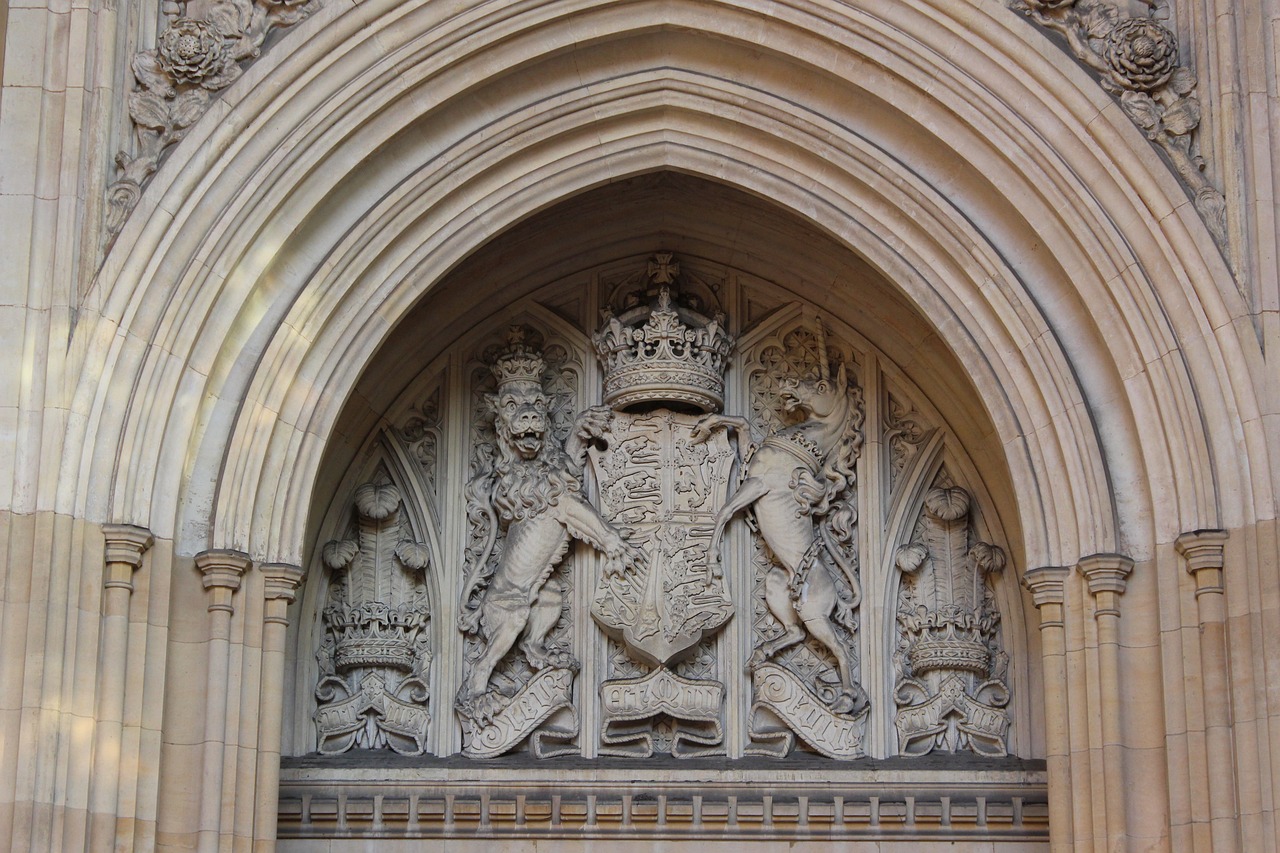
Philosophical Foundations of Monarchy
The concept of monarchy isn't just a relic of the past; it’s deeply rooted in a rich tapestry of philosophical ideas that have evolved over centuries. At its core, monarchy is more than just a system of governance; it embodies a unique relationship between the ruler and the ruled, steeped in notions of legitimacy, authority, and social contract. To truly understand the philosophical foundations of monarchy, we must delve into these core ideas that have shaped not only monarchies themselves but also the political landscapes they inhabit.
One of the most prominent ideas is the divine right of kings, which posits that monarchs derive their authority directly from God. This belief was prevalent in various cultures and served to legitimize the monarch's power, making it almost unchallengeable. If a king was deemed to be chosen by divine will, then opposing him could be seen as opposing God himself. This philosophy created a framework where the king was not just a political leader but also a spiritual figure, intertwining governance with religious authority.
Exploring this concept further reveals its profound implications on governance. The divine right was not merely a tool for justification; it shaped the very fabric of societal structure. In societies where this belief flourished, the monarch's decisions were often seen as infallible. For example, in medieval Europe, kings ruled with a sense of divine purpose, which fostered loyalty among subjects who believed that their king was a God-appointed ruler. This created a strong sense of unity and stability, albeit at the cost of individual freedoms and dissenting voices.
To illustrate this, let’s consider some historical monarchies that embraced the divine right:
| Monarchy | Region | Period | Impact |
|---|---|---|---|
| Louis XIV of France | France | 1643-1715 | Embodiment of absolute monarchy; famously stated, "L'état, c'est moi" (I am the state). |
| James I of England | England | 1603-1625 | Promoted the idea of kingship as divinely ordained; faced challenges that led to the English Civil War. |
| Akbar the Great | India | 1556-1605 | Used divine right to unify a diverse empire, promoting religious tolerance. |
However, as societies evolved, so did the critique of the divine right. Thinkers like John Locke and Thomas Hobbes began to challenge the notion that a monarch's power was absolute and divinely sanctioned. They introduced the idea of the social contract, suggesting that legitimate authority comes from the consent of the governed rather than divine endorsement. This shift in thinking laid the groundwork for modern democratic principles, where the power of rulers is derived from the will of the people rather than a divine mandate.
Social contract theory emphasizes the mutual obligations between monarchs and their subjects. It posits that rulers are granted authority through an implicit agreement with the people, who, in return for security and order, consent to be governed. This idea fundamentally changes the dynamic of power, suggesting that if a monarch fails to fulfill their duties, the people have the right to withdraw their consent. This philosophical shift not only altered the perception of monarchy but also paved the way for constitutional frameworks in modern governance.
In conclusion, the philosophical foundations of monarchy are complex and multifaceted. From the divine right of kings to social contract theory, these ideas have shaped the political landscape throughout history. As we navigate the modern world, understanding these concepts is essential to grasping the ongoing relevance and adaptation of monarchies in contemporary politics.
- What is the divine right of kings? It is a political and religious doctrine that asserts a monarch's legitimacy is conferred directly by God.
- How does social contract theory relate to monarchy? Social contract theory suggests that a ruler's authority comes from the consent of the governed, challenging the idea of absolute power.
- Are monarchies still relevant today? Yes, many constitutional monarchies exist today, balancing tradition with modern democratic principles.
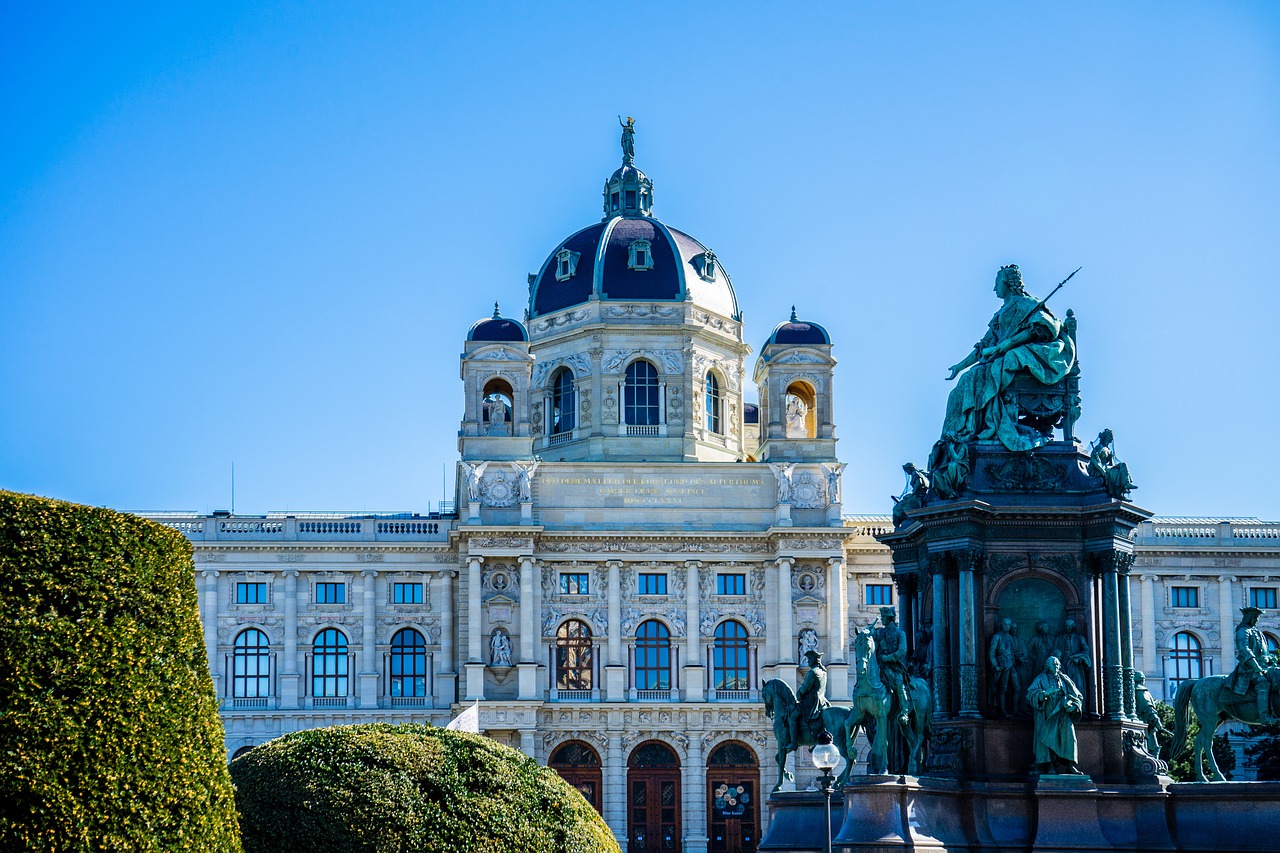
Divine Right of Kings
The concept of the has long been a cornerstone in the philosophy of monarchy, serving as a powerful justification for the authority of monarchs throughout history. This doctrine posits that a king's right to rule comes directly from God, rather than being derived from any earthly authority or the consent of the governed. Imagine a world where the monarch is seen not just as a ruler, but as a representative of divine will on Earth; this is the essence of the Divine Right. It creates a profound sense of legitimacy, suggesting that questioning the king is akin to questioning God Himself. This idea was particularly influential in Europe during the Middle Ages, where monarchs wielded immense power, often unchallenged, under the guise of divine sanction.
Historically, the Divine Right of Kings was not merely a philosophical stance; it was a practical tool that shaped the political landscape. Monarchs like Louis XIV of France famously declared, “L'état, c'est moi” (I am the state), encapsulating the belief that their authority was absolute and divinely ordained. This belief system fostered a culture of loyalty and obedience among subjects, who were taught to view their king as a paternal figure, ordained by a higher power to maintain order and justice. In essence, the king was the mediator between God and the people, a role that placed him above reproach.
However, the Divine Right of Kings was not without its critiques. Enlightenment thinkers such as John Locke and Jean-Jacques Rousseau began to challenge this doctrine, advocating for the idea of the social contract. They argued that rulers should derive their authority from the consent of the governed, rather than divine mandate. This shift in thinking paved the way for modern democratic principles, where the legitimacy of a ruler is contingent upon the will of the people, rather than divine favor. The decline of the Divine Right of Kings marked a significant turning point in political philosophy, leading to the rise of constitutional monarchies and republics.
To illustrate the duality of the Divine Right, we can look at historical examples that embraced this doctrine:
| Monarch | Country | Period | Impact |
|---|---|---|---|
| James I | England | 1603-1625 | Promoted the belief in divine right, leading to tensions with Parliament. |
| Louis XIV | France | 1643-1715 | Embodied absolute monarchy, using divine right to consolidate power. |
| Charles I | England | 1625-1649 | His belief in divine right led to civil war and his eventual execution. |
In conclusion, the Divine Right of Kings has played a pivotal role in shaping the historical narrative of monarchy. While it provided a robust framework for rulers to justify their power, it also sparked significant philosophical debates that have influenced modern governance. As we reflect on the past, it becomes clear that the evolution of political thought—from divine right to democratic ideals—has fundamentally altered the relationship between rulers and the ruled, setting the stage for contemporary discussions about authority, legitimacy, and governance.
- What is the Divine Right of Kings? The Divine Right of Kings is the belief that a monarch's authority comes directly from God, not from any earthly authority.
- Who were some notable monarchs that believed in the Divine Right? Notable monarchs include Louis XIV of France and James I of England.
- How did the Divine Right of Kings influence modern governance? The Divine Right of Kings led to critiques that eventually fostered the development of democratic principles and the social contract theory.
- Is the concept of Divine Right still relevant today? While the Divine Right of Kings is largely obsolete, discussions about authority and legitimacy in governance continue to reflect its historical significance.
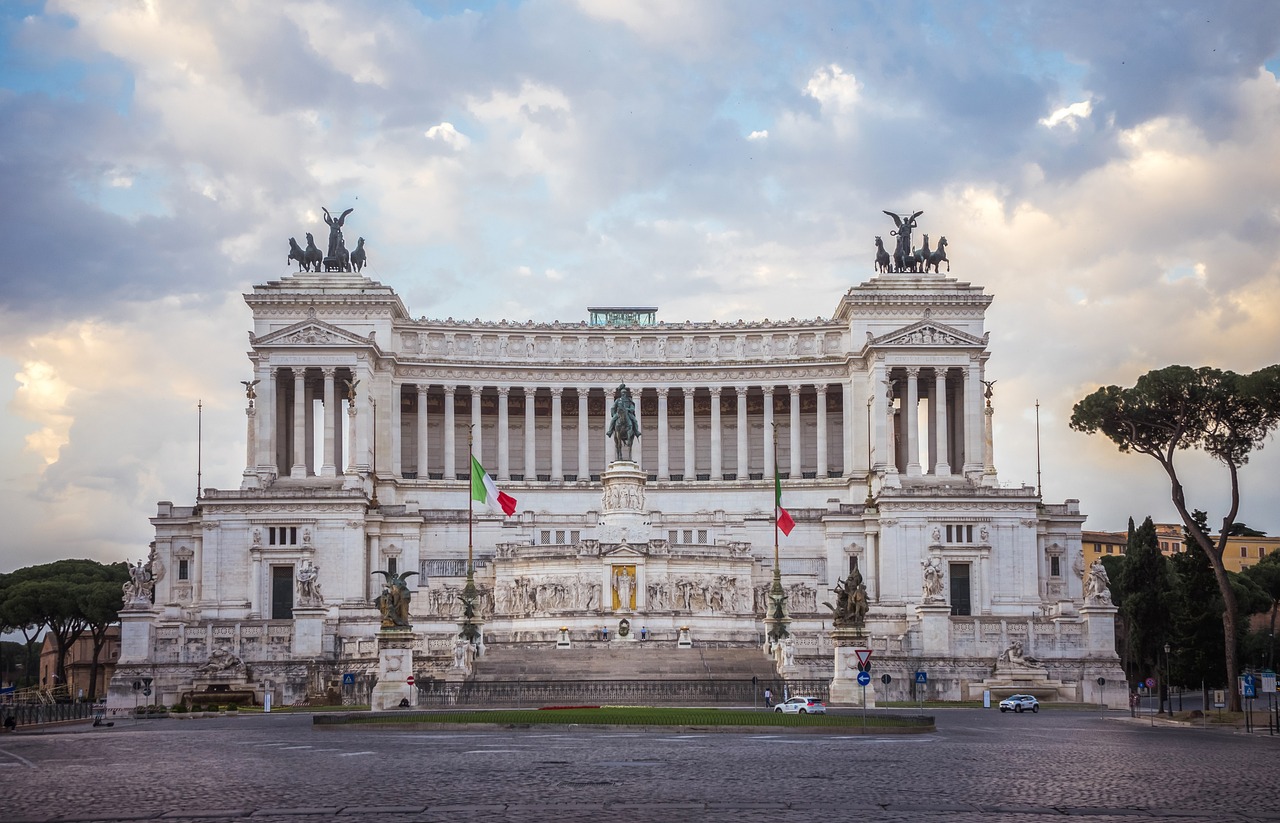
Historical Examples
Throughout history, the concept of monarchy has manifested in various forms, each leaving a distinct mark on the socio-political landscape of its time. One of the most notable examples is the reign of Louis XIV of France, often referred to as the "Sun King." His belief in the divine right of kings not only justified his absolute rule but also transformed the French monarchy into a symbol of power and opulence. Louis XIV famously stated, "L'état, c'est moi" ("I am the state"), which encapsulated the essence of absolute monarchy where the king's authority was seen as divinely ordained.
Another significant example is the British monarchy during the Tudor period, particularly under Henry VIII. His reign marked a pivotal shift as he sought to consolidate power by breaking away from the Catholic Church, leading to the establishment of the Church of England. This move not only solidified his authority but also showcased the intertwining of religious and political power, illustrating how monarchs could manipulate societal structures to maintain control.
In contrast, the reign of Peter the Great in Russia exemplifies how monarchs can adapt and modernize their kingdoms. Peter implemented sweeping reforms aimed at westernizing Russia, from military enhancements to cultural shifts. His efforts to establish a more centralized and powerful state reflect the dynamic nature of monarchy, where rulers must navigate the complexities of tradition and progress.
These historical examples reveal the transformative power of monarchy, highlighting how individual rulers shaped their nations through the lens of their beliefs and the prevailing philosophies of their times. Monarchies often served as a reflection of the societal values and conflicts, whether through the absolute power of Louis XIV, the religious upheaval under Henry VIII, or the modernization efforts of Peter the Great. Each case illustrates the profound impact of monarchical rule on governance and society.
To further comprehend these historical contexts, we can summarize key aspects of these monarchs in the table below:
| Monarch | Reign | Key Contributions | Philosophical Influence |
|---|---|---|---|
| Louis XIV | 1643-1715 | Centralization of power, establishment of absolute monarchy | Divine Right of Kings |
| Henry VIII | 1509-1547 | Creation of the Church of England, consolidation of power | Religious Authority and Political Power |
| Peter the Great | 1682-1725 | Westernization of Russia, military reforms | Modernization and Centralization |
These monarchs not only shaped the destinies of their nations but also contributed to the ongoing dialogue about the nature of power and governance. Their legacies continue to influence contemporary discussions about monarchy, authority, and the balance between tradition and modernity.
- What is the divine right of kings? The divine right of kings is a political and religious doctrine that asserts a monarch's legitimacy is conferred directly by God, making them accountable only to God.
- How did monarchies adapt to modern governance? Many monarchies transitioned to constitutional forms, where the monarch's powers are limited by law, often coexisting with democratic institutions.
- Are there any modern examples of absolute monarchies? Yes, countries like Saudi Arabia and Brunei maintain absolute monarchies where the king has significant control over the state.
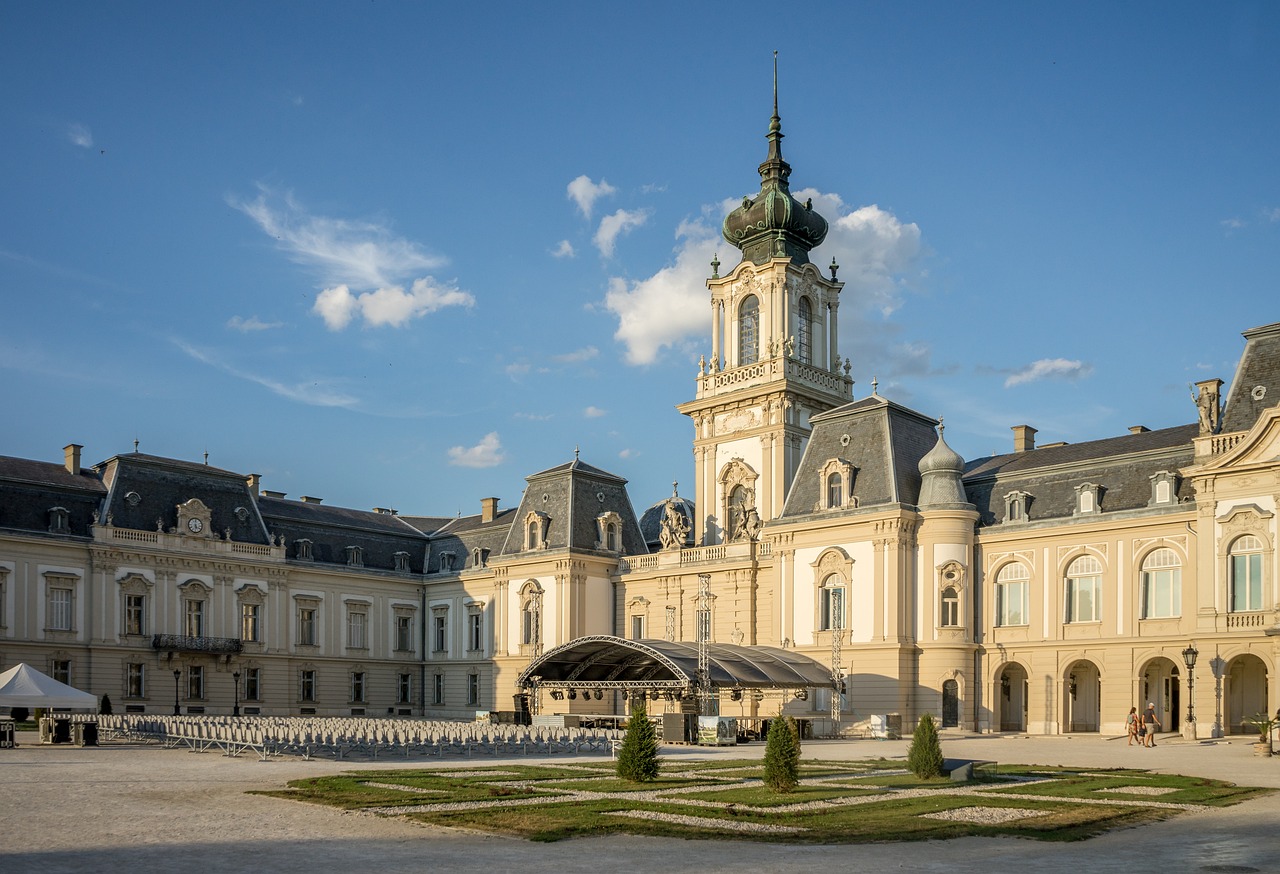
Critiques of Divine Right
The concept of the divine right of kings has long been a cornerstone of monarchical philosophy, asserting that monarchs derive their authority directly from God rather than from the consent of the governed. However, this doctrine has faced significant critiques over the centuries, particularly as societies evolved and began to embrace more democratic principles. One of the most profound criticisms is that the divine right creates an unchallengeable power structure that can lead to tyranny. When a ruler believes their authority is sanctioned by a higher power, it can foster an environment where dissent is not only discouraged but deemed sacrilegious. This notion raises a critical question: how can a society thrive when its leaders operate under the assumption that their decisions are divinely ordained?
Furthermore, the divine right often ignores the fundamental human rights of individuals. The idea that a king or queen has an inherent right to rule can lead to abuses of power, as seen in various historical contexts. For example, during the reign of Louis XIV of France, the absolute power he wielded was justified through divine right, resulting in significant oppression and the neglect of the populace's needs. Critics argue that this disconnect between ruler and subject creates a dangerous precedent, as it places the ruler above the law and above ethical scrutiny.
Philosophers such as John Locke and Thomas Hobbes challenged the divine right by introducing the idea of the social contract. Locke, in particular, posited that governments derive their legitimacy from the consent of the governed, not from divine sanction. This shift in thinking laid the groundwork for modern democratic theories, emphasizing that rulers should be accountable to their subjects rather than claiming an unassailable divine mandate. In this sense, the critiques of divine right not only question its moral and ethical implications but also advocate for a political system that prioritizes the voice and rights of the individual.
Moreover, the rise of enlightenment thinking further propelled critiques against divine right. Enlightenment philosophers emphasized reason, individualism, and the importance of questioning traditional authority. They argued that relying on divine right stifled progress and innovation, as it discouraged critical thought and debate. This intellectual movement ultimately contributed to revolutions and reformations across Europe, as people sought to dismantle the structures that upheld monarchies based on divine right.
In summary, the critiques of divine right highlight a fundamental shift in political thought, advocating for a system where authority is derived from the people rather than divine endorsement. This transition not only questions the legitimacy of absolute power but also champions the importance of individual rights and the necessity of accountability in governance. As societies continue to evolve, the discussions surrounding the divine right of kings remain relevant, urging us to reflect on the principles that should underpin our political systems.
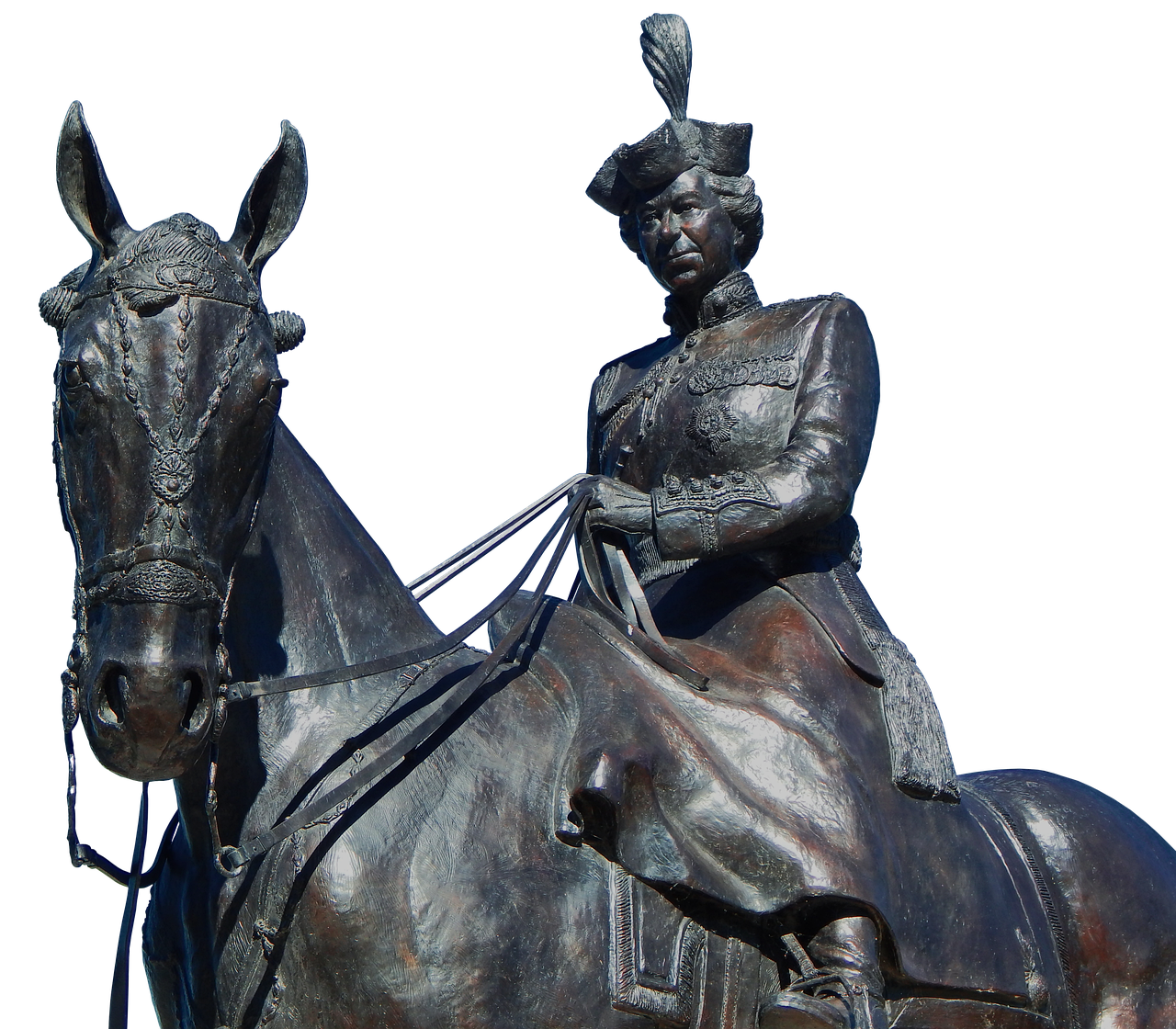
Social Contract Theory
The concept of has been pivotal in shaping our understanding of the relationship between rulers and the ruled. Imagine, if you will, a time before governments existed, where individuals roamed free but were also vulnerable to chaos and conflict. In such a scenario, the idea of a social contract emerges as a beacon of hope—an agreement among individuals to form a society where they collectively surrender some of their freedoms in exchange for protection and order. This foundational idea has been articulated by various philosophers, including Thomas Hobbes, John Locke, and Jean-Jacques Rousseau, each offering unique perspectives on the nature of government and authority.
At its core, social contract theory posits that a government’s legitimacy arises from the consent of the governed. This means that monarchs, like any other leaders, derive their authority not from divine right or hereditary privilege alone, but from the agreement of the people they rule. In this way, monarchs are seen not as absolute rulers but as stewards of the public good, tasked with upholding the rights and welfare of their subjects. This shift in perspective is nothing short of revolutionary, as it emphasizes the importance of mutual obligations between the ruler and the ruled. For instance, while the monarch provides stability, justice, and protection, the subjects are expected to obey laws and contribute to the common good.
Furthermore, social contract theory introduces the idea of accountability. If a monarch fails to uphold their end of the contract—if they become tyrannical or neglect the needs of their people—then the subjects have the right to challenge their authority. This principle has laid the groundwork for modern democratic movements, where the call for accountability and representation is paramount. It raises the question: if we, as citizens, have the power to choose our leaders, what does that mean for the future of monarchy? Can a monarch still hold power if they are not in tune with the will of the people?
To illustrate how social contract theory has influenced political thought, let’s look at a few key points:
- Hobbes: He argued that in the state of nature, life is "solitary, poor, nasty, brutish, and short." Thus, individuals consent to a strong, centralized authority to escape this chaos.
- Locke: Locke offered a more optimistic view, suggesting that people are inherently reasonable and capable of self-governance. He believed that the government's primary role is to protect life, liberty, and property.
- Rousseau: He introduced the idea of the "general will," asserting that true sovereignty lies with the people, and that governments must reflect the collective will of the populace.
In today's context, social contract theory continues to resonate, particularly as we witness the evolution of monarchies in democratic societies. Monarchs who adapt to the principles of social contract theory often find themselves more accepted and respected by their subjects. They become symbols of unity and continuity, rather than mere symbols of power. The challenge lies in balancing tradition with the demands of modern governance—an endeavor that requires sensitivity to public sentiment and a willingness to engage in dialogue with citizens.
As we navigate the complexities of contemporary politics, the principles of social contract theory serve as a reminder of the importance of engagement and responsibility in governance. It compels us to ask ourselves: how can we, as members of society, actively participate in shaping the institutions that govern us? The answers to these questions may very well determine the future of monarchy and its role within our political landscape.
- What is social contract theory? Social contract theory is a philosophical concept that explores the legitimacy of government authority based on the consent of the governed.
- Who are the key philosophers associated with social contract theory? Key figures include Thomas Hobbes, John Locke, and Jean-Jacques Rousseau, each contributing unique ideas about the nature of government and individual rights.
- How does social contract theory apply to modern monarchy? Social contract theory suggests that monarchs must uphold the rights and welfare of their subjects, and if they fail to do so, their authority can be challenged.
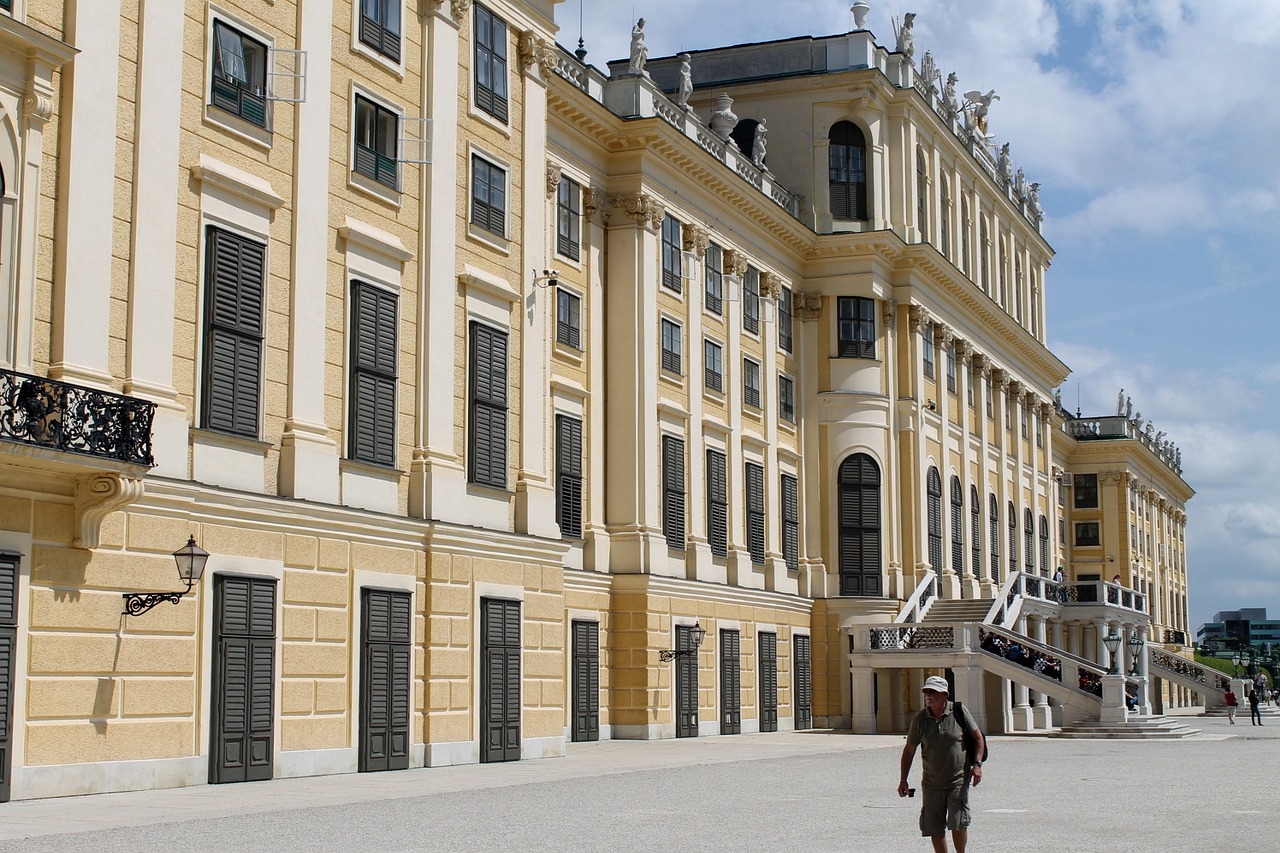
Modern Monarchy: Relevance and Adaptation
In today's fast-paced world, the institution of monarchy is often viewed through a lens of skepticism and curiosity. How does something so steeped in tradition manage to remain relevant in an era dominated by democratic ideals and social change? The answer lies in the ability of modern monarchies to adapt while preserving their historical significance. Many monarchies have transitioned into constitutional frameworks, where they serve more as symbolic figures rather than wielders of absolute power. This shift allows them to maintain a connection to their rich heritage while embracing contemporary governance.
Constitutional monarchies, such as those in the United Kingdom, Sweden, and Japan, exemplify this balance beautifully. Here, monarchs perform ceremonial duties and represent national unity, while elected officials handle the day-to-day workings of government. This arrangement not only preserves the monarchy's historical role but also enhances its legitimacy in the eyes of the public. In fact, many citizens appreciate the stability and continuity that a monarchy can provide amidst the often tumultuous political landscape.
Moreover, the relevance of modern monarchies is also shaped by their ability to engage with the populace. Social media has transformed how royals interact with the public, allowing them to share their lives and causes in real-time. This accessibility helps demystify the royal image, making them relatable figures rather than distant symbols of privilege. For example, the British royal family has embraced platforms like Instagram and Twitter, using them to connect with younger audiences and promote charitable initiatives. This shift not only humanizes the monarchy but also fosters a sense of community and shared purpose.
However, the adaptation of monarchy is not without its challenges. Public perception can be fickle, influenced by scandals, changing societal values, and the relentless scrutiny of the media. The recent debates surrounding figures like Prince Harry and Meghan Markle illustrate how modern royals navigate the complexities of their roles in a globalized society. Their decision to step back from royal duties sparked intense discussions about the relevance of monarchy itself, demonstrating that even the most established institutions must continually evolve.
As we look to the future, it’s clear that modern monarchies must address pressing issues such as social justice, climate change, and equality. By actively participating in these conversations, they can reinforce their relevance and show that they are not relics of the past but rather integral parts of contemporary society. The ability to adapt to societal needs while respecting traditions is what will ultimately determine the fate of monarchy in the years to come.
To summarize, the relevance of modern monarchies hinges on their capacity to adapt to the changing political landscape while remaining true to their historical roots. They occupy a unique space that allows them to bridge the gap between tradition and modernity, offering a sense of continuity amidst change. As they navigate their roles in the 21st century, the challenge will be to maintain this delicate balance while engaging meaningfully with the public.
- What is the role of a constitutional monarchy? A constitutional monarchy serves as a ceremonial institution, where the monarch's powers are limited by a constitution or laws, allowing elected officials to govern.
- How do modern monarchies engage with the public? Modern monarchies use social media and public appearances to connect with citizens, promoting transparency and relatability.
- What challenges do modern monarchies face? They face scrutiny from the media, changing public opinions, and the need to address contemporary social issues.
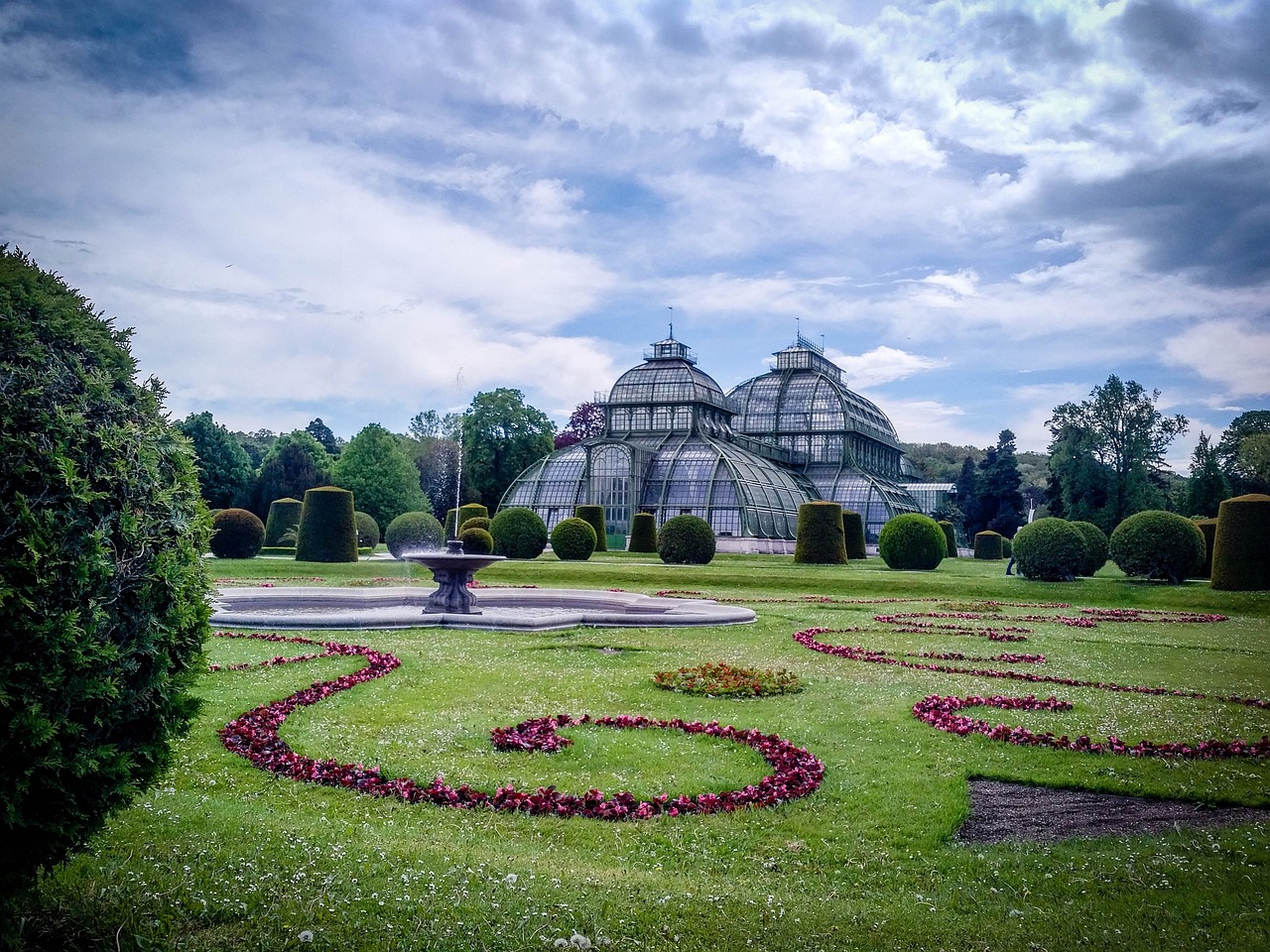
Constitutional Monarchies
Constitutional monarchies represent a fascinating blend of tradition and modern governance. In these systems, the monarch's powers are largely ceremonial, with actual governance resting in the hands of elected officials. This arrangement allows for the preservation of historical and cultural identities while ensuring that the principles of democracy are upheld. Think of it as a beautiful tapestry woven together with threads of the past and present, where the monarch symbolizes the nation, and the parliament represents the people's voice.
One of the most notable aspects of constitutional monarchies is their ability to adapt to changing political landscapes. For instance, countries like the United Kingdom, Sweden, and Japan have successfully maintained their royal families while evolving their political systems to meet contemporary democratic standards. The monarch's role often includes performing ceremonial duties, such as the opening of parliament, representing the country at state functions, and serving as a figurehead during national celebrations. This combination of duties helps to foster a sense of unity and continuity in a rapidly changing world.
Moreover, constitutional monarchies often contribute to the political stability of a nation. By providing a non-partisan figure who embodies the state, they can help bridge divides during times of political unrest. For example, during crises, a monarch can serve as a stabilizing force, promoting national unity and encouraging dialogue among differing political factions. This role can be crucial in maintaining peace and order, especially in nations with diverse populations or historical tensions.
However, the relevance of constitutional monarchies is not without debate. Critics often question the need for a monarchy in an age where equality and democracy are paramount. They argue that the existence of a hereditary position contradicts the principles of meritocracy and equal opportunity. Yet, supporters of constitutional monarchies contend that these institutions can coexist with democratic values, serving as a reminder of a nation’s heritage and identity.
To better understand the dynamics of constitutional monarchies, let’s take a look at a few key examples:
| Country | Monarch's Role | Parliamentary System |
|---|---|---|
| United Kingdom | Ceremonial Head of State | Parliamentary Democracy |
| Sweden | Ceremonial Duties | Parliamentary Democracy |
| Japan | Symbol of the State | Parliamentary Democracy |
As we can see from the table, while the monarchs in these countries do not wield political power, they play an essential role in maintaining national identity and continuity. Their presence often brings a sense of tradition and stability that can be quite comforting in an ever-changing world.
In conclusion, constitutional monarchies illustrate how ancient institutions can adapt to modern governance. They serve as a testament to the enduring nature of tradition while embracing the values of democracy. As society continues to evolve, the challenge will be to ensure that these monarchies remain relevant and resonate with the people they symbolize.
- What is a constitutional monarchy? A constitutional monarchy is a form of government where a monarch acts as the head of state within the parameters of a constitution, which outlines the powers of the government and the rights of citizens.
- How does a constitutional monarchy differ from an absolute monarchy? In a constitutional monarchy, the monarch's powers are limited by law or a constitution, whereas in an absolute monarchy, the monarch has unrestricted power over the state.
- Can constitutional monarchies exist in a democracy? Yes, constitutional monarchies can coexist with democratic principles, serving as a symbol of national unity while allowing elected officials to govern.
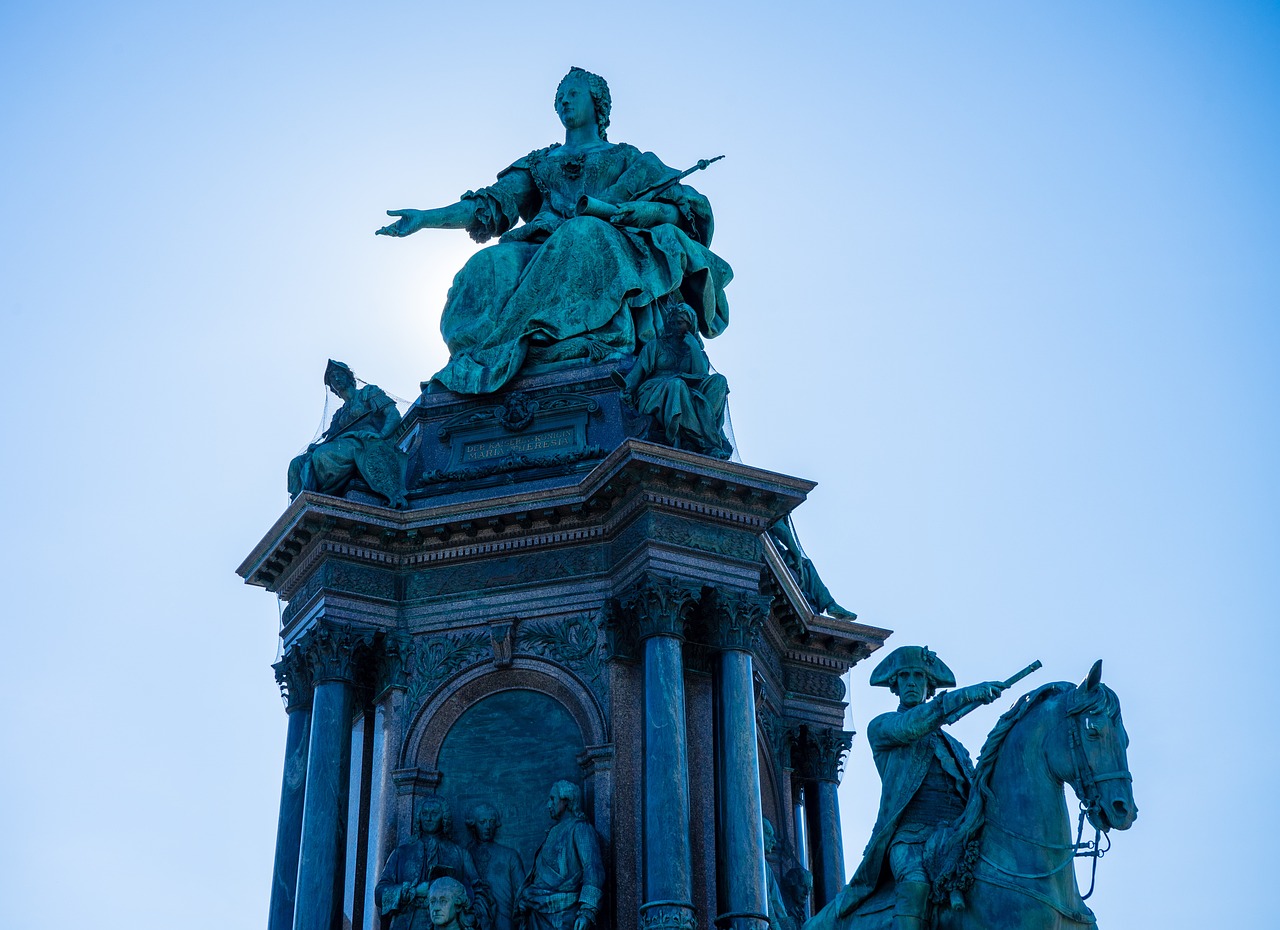
Public Perception of Monarchies
In today's fast-paced world, where information travels at the speed of light, the perception of monarchies is a topic that often ignites passionate discussions. Many people wonder: Are monarchies relics of the past, or do they still hold value in modern society? The answer isn't straightforward, as public sentiment varies greatly across different cultures and nations. In some regions, monarchies are viewed with deep respect and admiration, while in others, they are seen as outdated institutions clinging to power.
One of the key factors influencing public perception is the role that social media plays in shaping opinions. Platforms like Twitter, Instagram, and TikTok have transformed the way royal families are portrayed and perceived. For instance, the British royal family, with its glamorous events and public engagements, often finds itself at the center of both adoration and criticism. The recent marriage of Prince Harry and Meghan Markle sparked a global conversation about race, privilege, and the relevance of the monarchy itself. This event showcased how a single moment can shift public opinion dramatically, leading to both fervent support and fierce backlash.
Moreover, the concept of democratic values plays a significant role in how monarchies are perceived. In constitutional monarchies, such as those in Sweden and the United Kingdom, the monarchy is seen as a symbol of national unity and tradition, albeit one that operates within a democratic framework. Citizens often appreciate the ceremonial role that monarchs play, which can foster a sense of continuity and stability in times of political turbulence. However, there is a growing sentiment among younger generations who question the relevance of such institutions, advocating for a more egalitarian form of governance.
To illustrate the shifting perceptions, let's take a look at some recent survey data regarding public attitudes towards monarchies:
| Country | Support for Monarchy (%) | Opposition to Monarchy (%) |
|---|---|---|
| United Kingdom | 60 | 30 |
| Sweden | 70 | 20 |
| Spain | 50 | 40 |
| Thailand | 80 | 10 |
This table highlights that while support for monarchies remains strong in certain countries, there are notable exceptions where opposition is growing. The conversation surrounding monarchies is not just about tradition; it’s also about accountability and transparency. As citizens demand more from their leaders, the monarchy must adapt, embracing modern values while maintaining its historical significance.
Ultimately, the public perception of monarchies is a complex tapestry woven from tradition, modernity, and personal beliefs. As we navigate this ever-changing landscape, one thing is clear: the monarchy will continue to be a focal point of political discourse, challenging us to reflect on what we value in our governance systems.
In conclusion, the future of monarchies hinges on their ability to resonate with the public’s expectations and ideals. Whether they are seen as vital institutions or outdated relics, monarchies will undoubtedly remain a topic of interest and debate in our evolving political narrative.
- What is the main role of a constitutional monarchy? A constitutional monarchy serves as a ceremonial figurehead while the actual governance is carried out by elected officials.
- How does social media influence public perception of monarchies? Social media can amplify both positive and negative sentiments, shaping public opinion rapidly and broadly.
- Are monarchies still relevant in today's society? Many argue that monarchies provide a sense of tradition and continuity, while others believe they are outdated and should be abolished.
Frequently Asked Questions
- What is the historical significance of monarchy?
The historical significance of monarchy lies in its profound impact on the development of political systems and societal structures throughout history. Monarchies have often served as a central authority, shaping laws, culture, and governance. They reflect the evolution of power dynamics and have played pivotal roles in major historical events, influencing everything from wars to revolutions.
- What are the philosophical foundations of monarchy?
The philosophical foundations of monarchy primarily revolve around concepts like the divine right of kings and social contract theory. The divine right posits that monarchs derive their authority from a higher power, legitimizing their rule. In contrast, social contract theory emphasizes the mutual obligations between rulers and subjects, suggesting that monarchs must govern with the consent of the governed.
- How does the divine right of kings affect modern governance?
While the divine right of kings has largely fallen out of favor, its historical influence can still be seen in how some monarchies operate today. It laid the groundwork for discussions about legitimacy and authority, prompting critiques that eventually led to more democratic forms of governance. Modern monarchies often balance this legacy with contemporary democratic principles, adapting to societal changes.
- What is a constitutional monarchy?
A constitutional monarchy is a system where a monarch's powers are limited by a constitution or laws. This setup allows the monarch to serve as a symbolic figurehead while elected officials handle governance. It strikes a balance between tradition and modern democratic practices, allowing monarchies to maintain relevance in today's political landscape.
- How do public perceptions of monarchy change over time?
Public perceptions of monarchy can shift significantly due to various factors, including social media, global events, and changing cultural values. Today, many people view monarchies with a mix of admiration and skepticism. The influence of digital connectivity allows for more open discussions about royal institutions, leading to evolving attitudes and expectations from the public.
- What challenges do modern monarchies face?
Modern monarchies face numerous challenges, such as maintaining relevance in democratic societies and addressing public scrutiny. They must navigate the fine line between tradition and modernity, ensuring they adapt to contemporary values while preserving their historical significance. Additionally, scandals or controversies can significantly impact public support and trust in royal institutions.



















